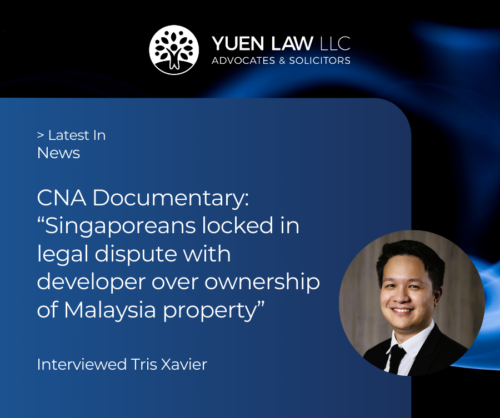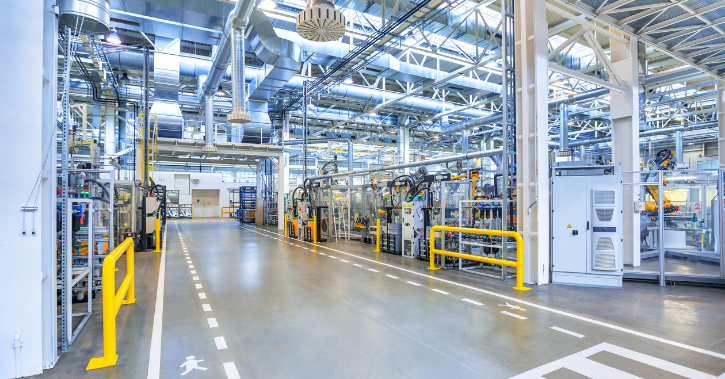
When it comes to purchasing property in Singapore, it is essential to be aware of the various legal and financial obligations involved. One key obligation is the payment of Buyer Stamp Duty (BSD), which applies to all property types, including residential and industrial real estate.
The BSD is determined by whichever is higher: the purchase price outlined in the sale and purchase documents or the property’s market value. In this article, we will delve into the stamp duty rates for industrial properties in Singapore, offering you the insights you need to navigate your buying or selling journey.
If you are interested in residential property stamp duty rates or commercial property stamp duty rates, be sure to check out our other articles.
Industrial Property Stamp Duty Rates
On 14 February 2023, the government announced an increase in the top marginal Buyer’s Stamp Duty (BSD) rates for both residential and non-residential properties to make the BSD regime more progressive.
For industrial properties, the portion of the property’s value between $1 million and $1.5 million is now taxed at 4%, and the portion of the property’s value above $1.5 million is taxed at 5%.
Buyer’s Stamp Duty (BSD) on Industrial Property
As of 15 February 2023, the Buyer Stamp Duty (BSD) rates for industrial properties in Singapore are as follows:
| Purchase price or market value of the property | BSD for industrial properties |
| First $180,000 | 1% |
| Next $180,000 | 2% |
| Next $640,000 | 3% |
| Next $500,000 | 4% |
| Anything above $1,500,000 | 5% |
BSD is rounded down to the nearest dollar, subject to a minimum duty of $1.
Illustration of Buyer Stamp Duty Payable on Industrial Property
To help you understand how BSD is calculated, here are examples based on different purchase prices for industrial properties:
| Purchase price or market value of the property | Purchase of a $2mil industrial property | Purchase of a $3mil industrial property | Purchase of a $5mil industrial property |
| 1% of First $180,000 | $1,800 | $1,800 | $1,800 |
| 2% of Next $180,000 | $3,600 | $3,600 | $3,600 |
| 3% of Next $640,000 | $19,200 | $19,200 | $19,200 |
| 4% of Next $500,000 | $20,000 | $20,000 | $20,000 |
| 5% of the remaining amount | $25,000 | $75,000 | $175,000 |
| Total Amount Payable | $69,690 | $119,600 | $219,600 |
Seller’s Stamp Duty (SSD) on Industrial Property
Seller Stamp Duty (SSD) is calculated based on the higher of the selling price or the market value of the industrial property at the time of sale.
While Buyer Stamp Duty (BSD) is calculated using a progressive tiered tax rate based on the purchase price, Seller Stamp Duty (SSD) operates differently. SSD is applied at a flat rate, determined by how long you hold the property. This approach is designed to discourage short-term speculation and property flipping.
The good news is that no SSD is payable if you hold an industrial property for more than three years. However, if the property is sold within three years, SSD will apply at progressive rates of 15%, 10%, and 5%, depending on the length of the holding period. For more clarity, refer to the table below:
| Holding Period | Seller Stamp Duty (SSD) Rate for Industrial Properties |
| Up to 1 year | 15% |
| More than 1 years, and up to 2 years | 10% |
| More than 2 years, and up to 3 years | 5% |
| More than 3 years | No SSD payable |
By understanding these rates, property owners can plan their transactions more effectively and avoid additional costs.
FAQ
If parts of the Industrial Property were acquired by different times vendors at different times, Seller Stamp Duty (SSD) will be calculated based on the holding period of each portion.
For example:
- Vendor A acquired 50% of the property more than three years before the sale. Since the holding period exceeds three years, this portion will not be subject to SSD.
- Vendor B acquired the other 50% of the industrial property and sold it after holding it for two years.
This portion will be subject to a 5% SSD rate.Thus, only 50% of the property’s value (Vendor B’s portion) will incur a 5% SSD.
Seller Stamp Duty (SSD) is based on the higher of either the selling price or the market value of the partial interest being sold.
No, Additional Buyer Stamp Duty (ABSD) applies only to residential property purchases. If you are buying a commercial property, you will not be subject to ABSD.
No, foreigners pay the same Buyer Stamp Duty (BSD) as Singaporeans when buying industrial properties. Unlike residential property purchases, where Additional Buyer Stamp Duty (ABSD) applies to foreigners and Singapore permanent residents, there are no additional duties for industrial properties.
Additional Conveyance Duty (ACD) primarily applies to residential properties in Singapore. For specific advice, please contact us at inquiry@yuenlaw.com.sg.
Yes, if your business is GST-registered and you’re buying an industrial property from a GST-registered seller, you can claim the GST paid on the purchase. This also covers costs such as conveyance fees, construction and development expenses, and professional services, provided they come from GST-registered providers. Be sure to confirm the seller’s GST status and consult a tax advisor to understand the specific conditions for claiming GST.
Industrial properties are designed for manufacturing, production, warehousing, and logistics. Located in designated industrial zones, these properties include general and light industrial buildings, factories (including food production), and specialized facilities like business parks that cater to high-tech industries and research activities. Classified under B1 (light industrial) and B2 (general industrial) zoning, these properties reflect varying environmental impacts.
In contrast, commercial properties cater to retail and service-oriented businesses, such as shopping malls, restaurants, and offices. They are typically situated in commercial zones, prioritize customer accessibility, and feature designs that attract foot traffic.
For more information on the definition of Industrial Property.
Resources
Stamp Duty Calculator for Buying of Industrial Property
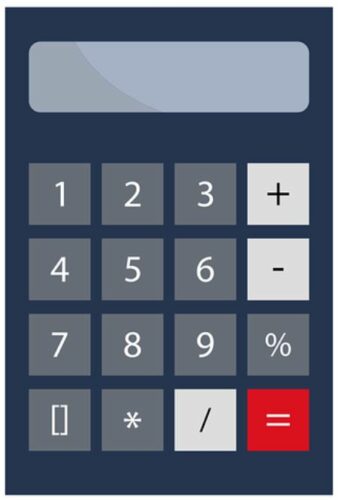
Stamp Duty calculator for Selling of Industrial Property


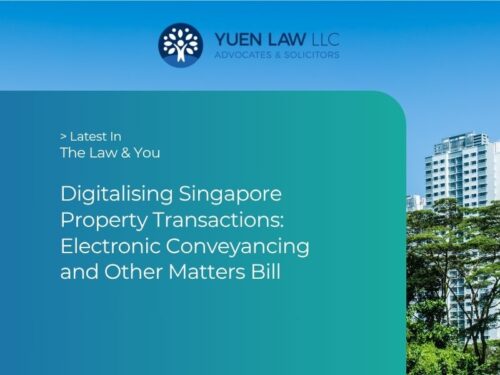
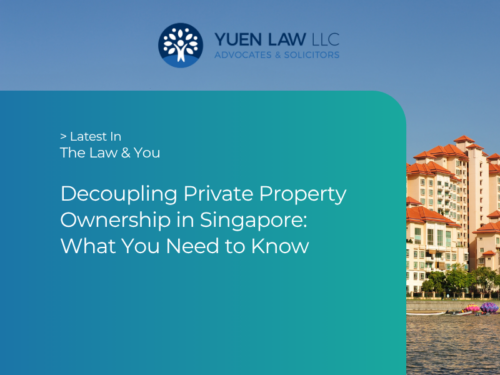
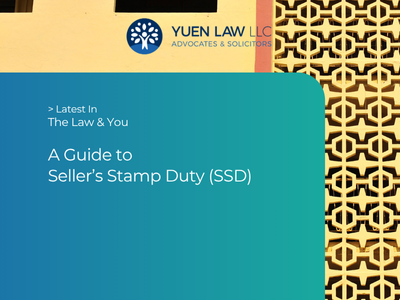
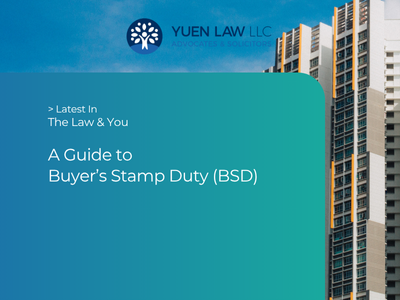
![Yuen Law Acts for Successful Applicant to Order Sale of Co-Owned Property, Sin Chiau Soon v Aitken Robert Bond [2025] SGHC 94 H2](https://yuenlaw.com.sg/wp-content/uploads/2025/06/Yuen-Law-News-Yuen-Law-Acts-for-Successful-Applicant-to-Order-Sale-of-Co-Owned-Property-1-500x375.png)
